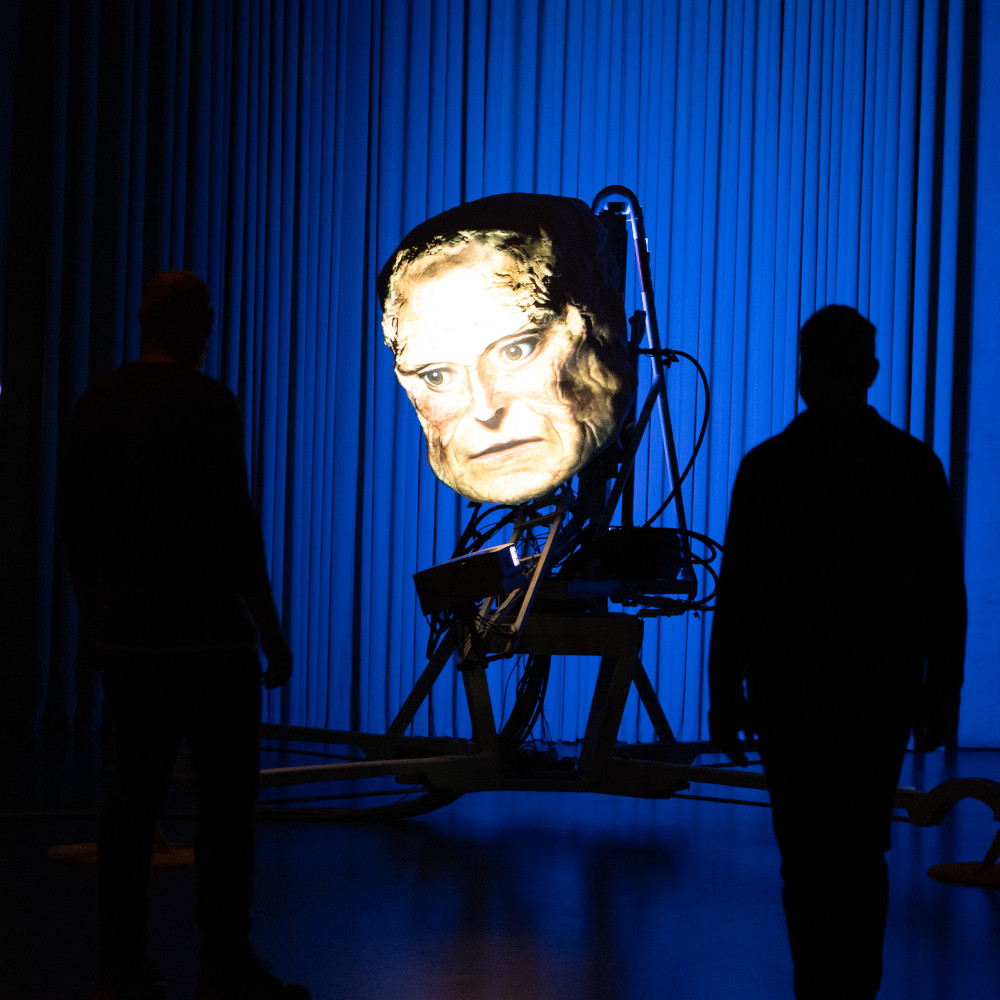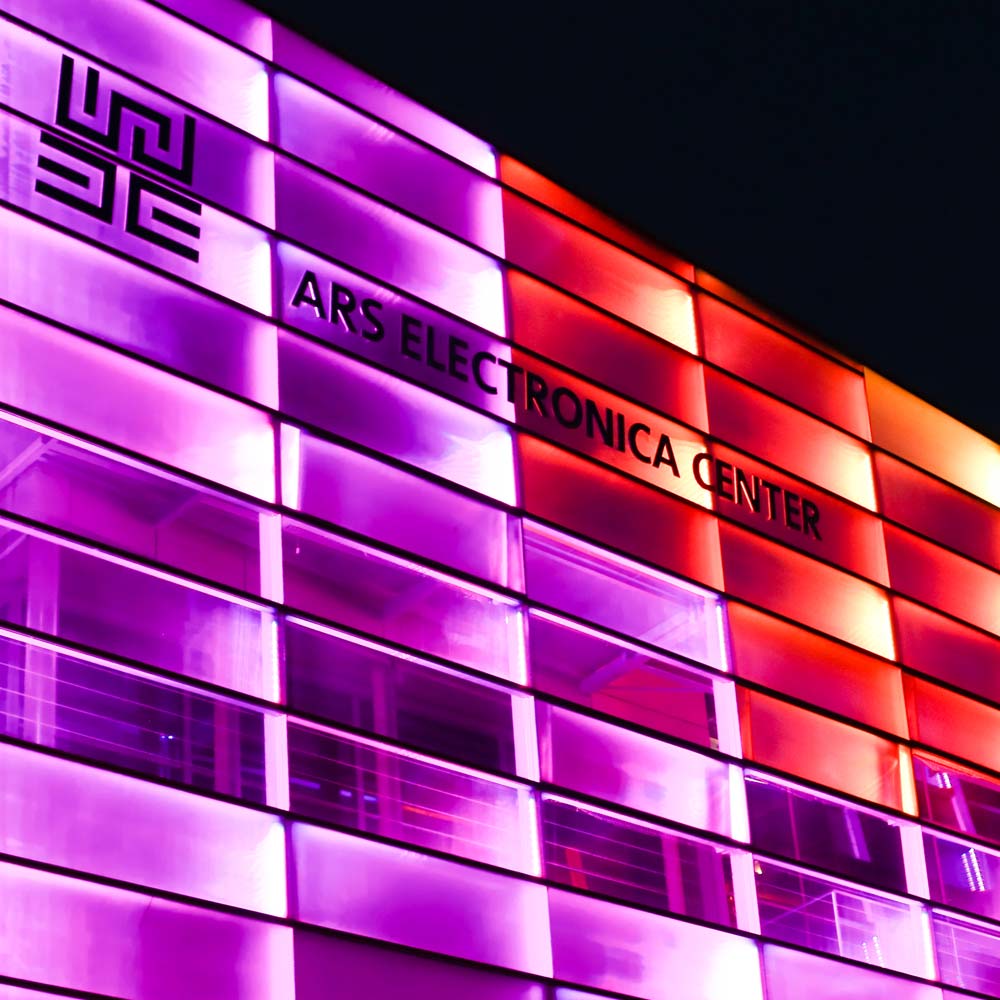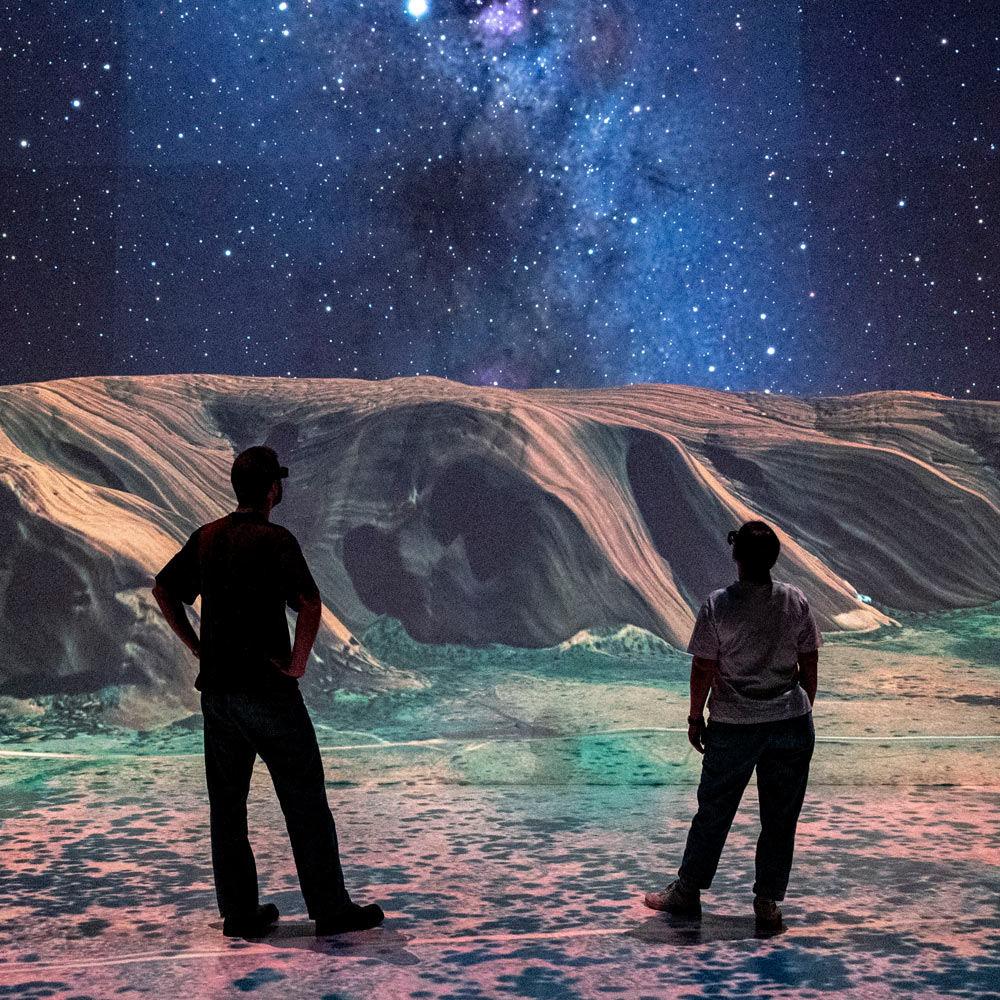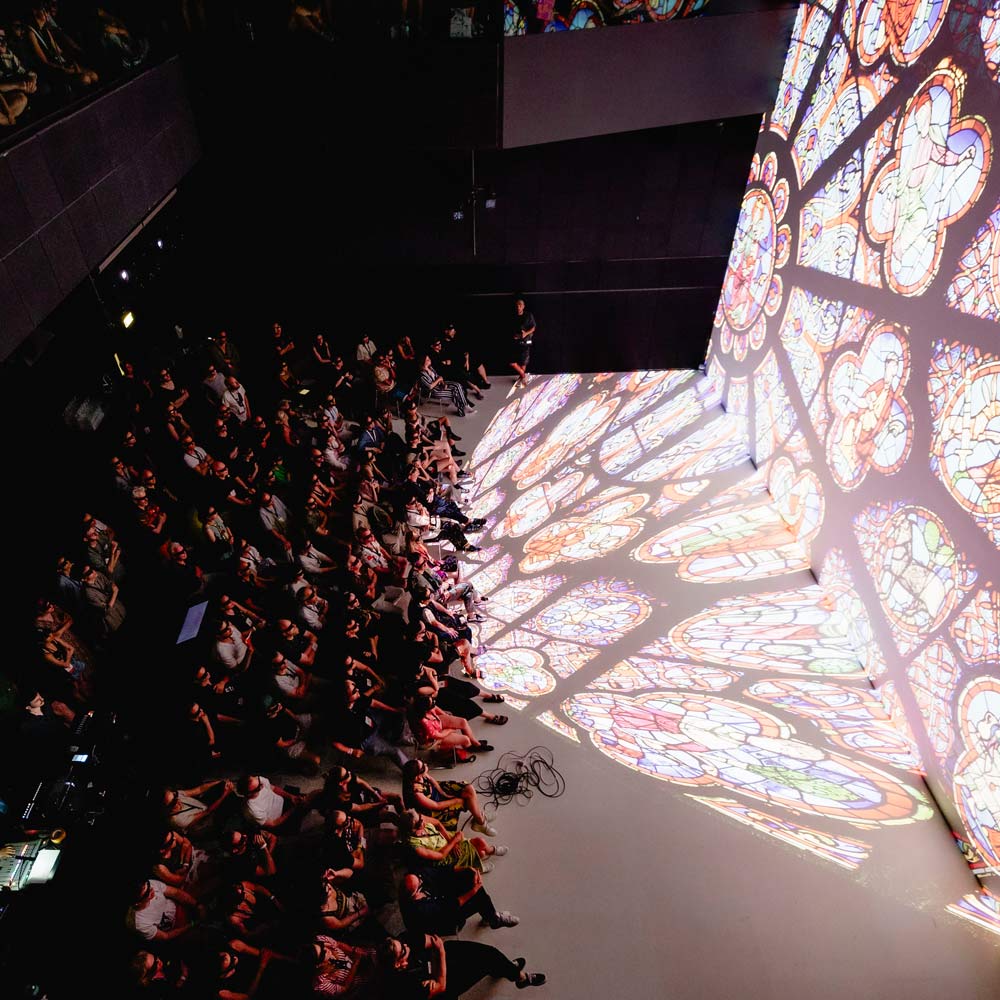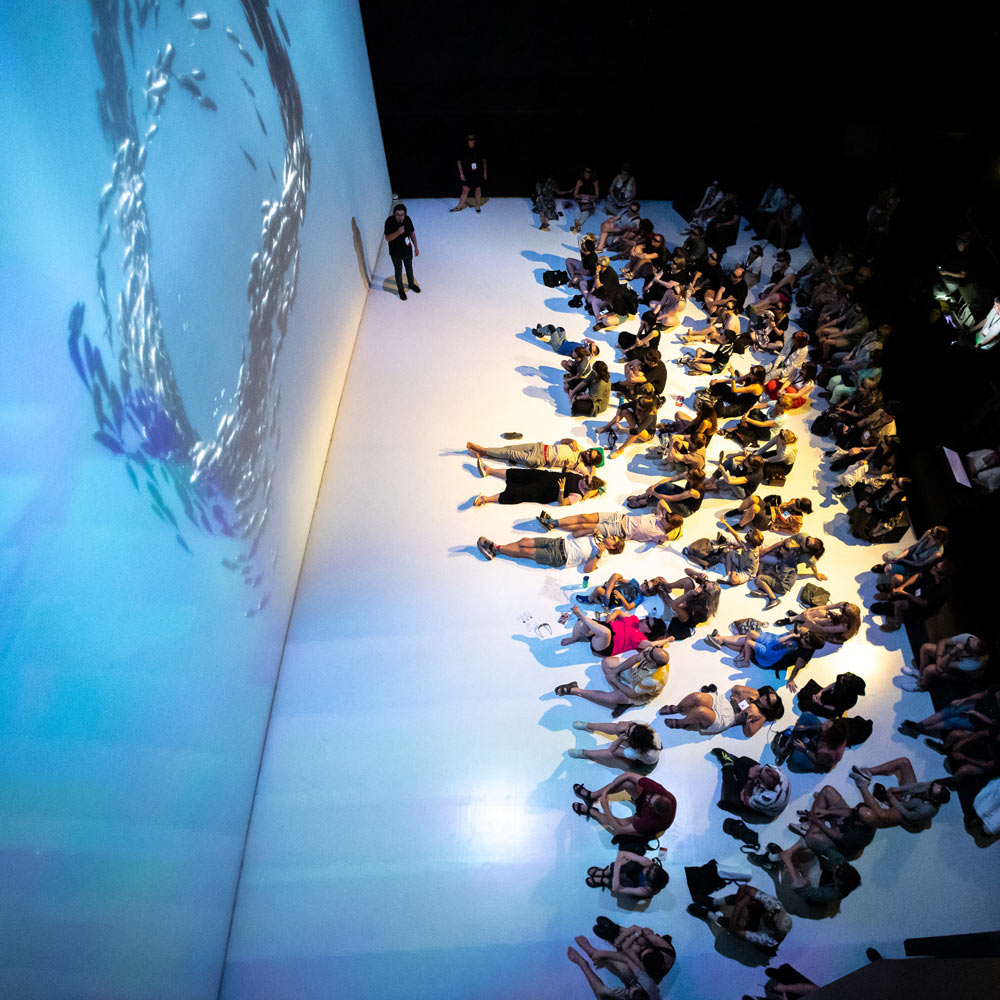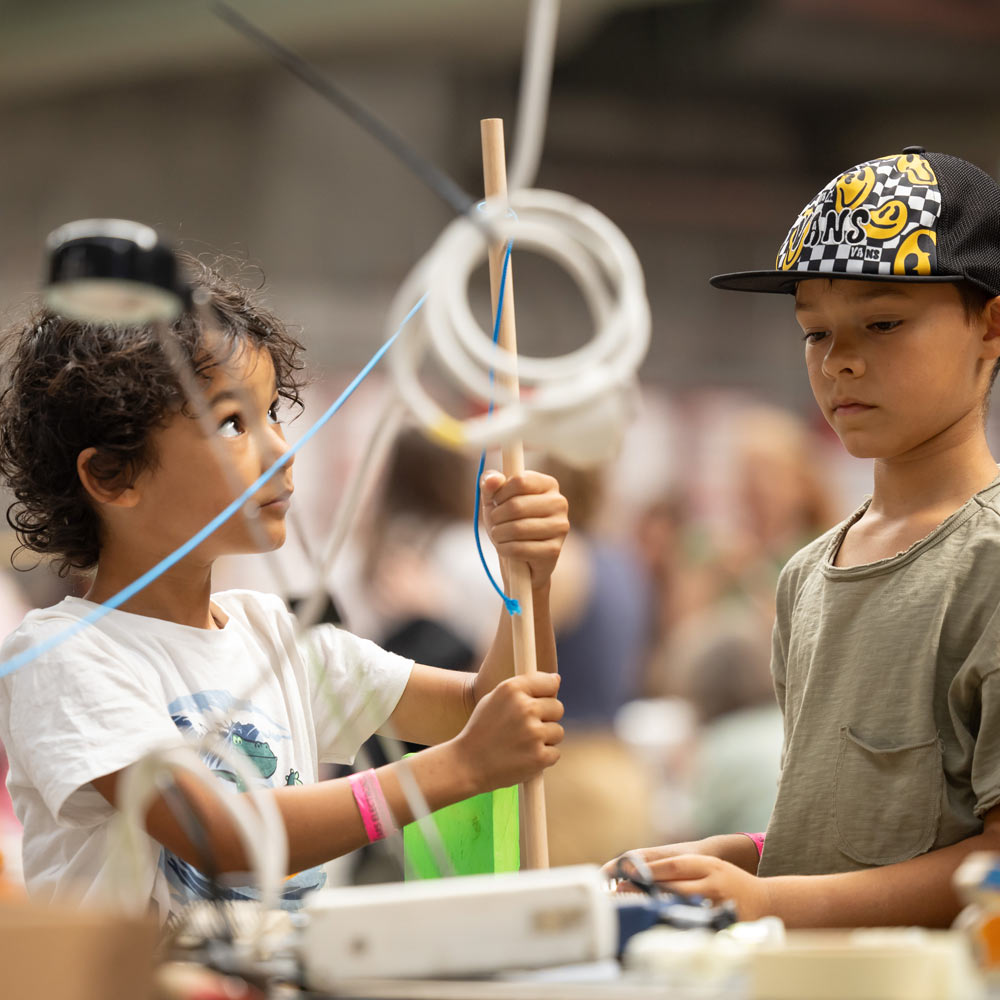When we think about the practice and impact of art in times of upheaval, we need to consider not only the artists, but also the institutions that support them. So what role does Ars Electronica play—and what does it actually want to achieve?
Initially founded as a festival in 1979, Ars Electronica has developed into a unique ecosystem over the decades. Today, it is many things at once: a platform for artists that supports, disseminates and celebrates their work. A forum for activists and initiatives that blur the boundaries between art, science, and technology and aim to improve our everyday lives. A learning space that enables students, job seekers, and everyone else to engage playfully and critically with new technologies. An artistic R&D laboratory and atelier that develops prototypes that aim to initiate social innovation. A creative partner for companies that helps them not only generate profits, but also create meaning and social benefit. All of this is driven by the question: How do we want to live in the future and how can we make this future a reality?
As part of this year’s festival, we not only want to introduce you to the Ars Electronica ecosystem, but also invite you to talk to us about our current projects. You can speak with the researchers, developers, and artists of the Ars Electronica Futurelab, who are experimenting with exciting prototypes at the interface of art, technology, and society. Or with the team at Ars Electronica Solutions, who develop innovative storytelling for science landmarks like the ESA, interactive installations for museums such as the Gasometer Oberhausen and the Pinakothek Munich, as well as major events including EXPO 2020 Dubai. Right next door, in the Art Thinking Lounge, we invite you and anyone who is interested to take part and share ideas in various workshops and town hall meetings.

